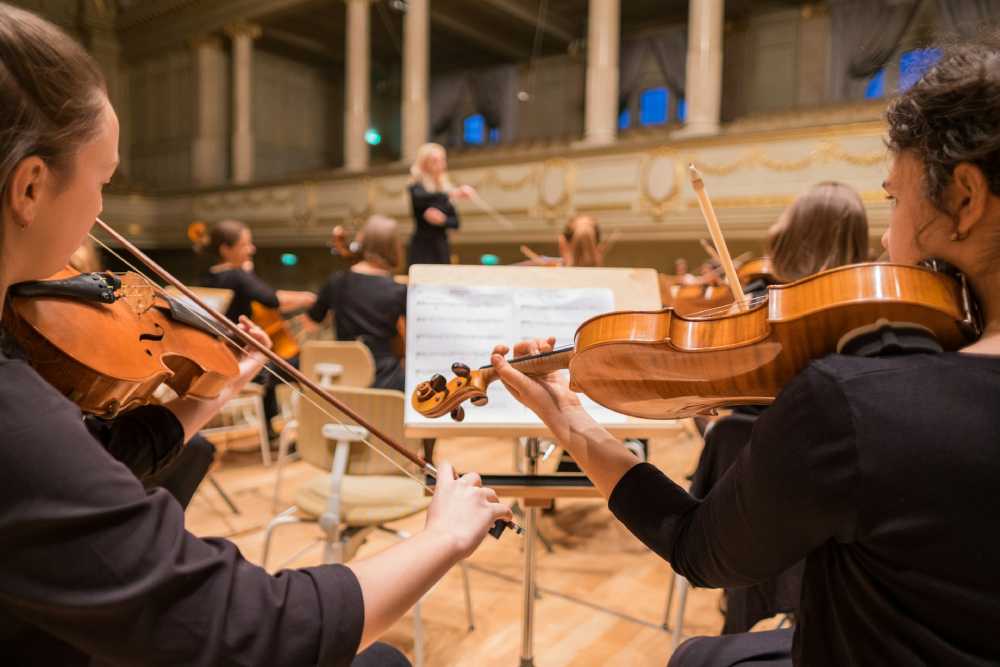Charting the Multi-Generational Impact of School Music Programs
Music education is an art form that transcends learning to play an instrument and delves into profound personal and social transformation. Schools in various communities are learning to contribute to music education meaningfully, recognizing its capacity to bolster cognitive development and nurture emotional well-being. Through creative exploration, students embark on a unique educational journey, discovering new dimensions of learning that enhance their academic and personal lives.
By seamlessly integrating music into academic curricula, the hidden benefits of this art form are revealed, empowering students and fostering unity. This article explores the multifaceted impact of music education in schools, supported by compelling academic research and illustrative real-world examples that underscore music’s vital role in shaping young lives.
Contents
- 1 Enhancing Emotional Intelligence through Music
- 2 The Role of Music in Cognitive Development
- 3 Bridging Cultural Gaps with Music in the Classroom
- 4 Turning Theory into Practice: Real-World Skills
- 5 Addressing Economic Disparities in Music Education
- 6 How Technology is Reshaping Music Learning
- 7 Conclusion: Music as a Lifelong Companion
Enhancing Emotional Intelligence through Music
Beyond sharpening the intellect, music education profoundly nurtures emotional intelligence, an essential component of overall well-being. By engaging with music, students gain a deeper awareness of their own emotions and a greater capacity to understand the feelings of others. This exploration allows them to express emotions creatively, fostering improved communication and empathy.
Countless real-life examples illustrate the powerful impact of music on developing emotional maturity. One heartening case involved a young student who struggled to articulate his emotions verbally but found solace and expression in the lilting notes of a piano. This transformation bolstered his self-esteem and demonstrated music’s potential as a therapeutic outlet for emotional release.
The Role of Music in Cognitive Development
Music education is often hailed as a catalyst for cognitive enhancement, with numerous studies underscoring its ability to supercharge brain development. One compelling piece of research has indicated that students who receive consistent music instruction show significantly higher IQ levels and an overall improvement in cognitive abilities, including memory retention and spatial-temporal skills. This intellectual enhancement is no small feat, as it equips students with the tools they need for success in other academic areas.
Increased mental agility results from the harmonic interplay of melody and rhythm, awakening the brain’s neuronal pathways. Music’s symphony of sounds fosters a cognitive environment where students thrive, developing critical thinking, problem-solving, and even mathematics skills. Through the rhythmic exploration of music, students gain a deeper understanding of complex concepts, translating this knowledge into academic excellence.
Bridging Cultural Gaps with Music in the Classroom
Music is a beacon of unity, transcending cultural divisions and fostering inclusivity within classrooms. Educators can create environments where tolerance and cultural appreciation flourish by introducing pupils to various international musical traditions. Embracing the harmonious blend of different cultures through music breaks down barriers, ultimately reducing racial tension and fostering understanding.
Programs emphasizing multicultural music education have transformed classrooms into vibrant exploration and mutual respect hubs. As students journey through the rich tapestry of musical genres, they discover new aspects of different cultures and reflect on their own, fostering a global interconnectedness.
Turning Theory into Practice: Real-World Skills
Engaging in music education extends beyond mastering an instrument. It cultivates essential soft skills invaluable in the modern world. From teamwork to discipline, these attributes are honed through collaboration in ensembles and practice sessions. Such skills seamlessly translate into real-world applications, preparing students to excel in various careers.
Forbes insights highlight how the virtues acquired through music education lay a robust foundation for career readiness. The discipline required to learn a complex piece fosters time management skills while performing in an ensemble nurtures collaboration, both highly desirable traits in the workforce.
Addressing Economic Disparities in Music Education
While the merits of music education are undeniable, economic inequalities often limit access for many students. Amid budget constraints, schools must innovate to ensure all students can benefit from this enriching experience. Emerging programs tackle these disparities head-on by providing affordable or free music instruction to underserved communities.
These initiatives have borne success stories, empowering students who may not have had the opportunity to engage with music. These programs open a world of possibilities by dismantling financial barriers, ensuring every child has a fair chance to explore their musical potential. The virtuous cycle of fostering talent and resilience through music is crucial for building brighter futures.
How Technology is Reshaping Music Learning
As technology advances, it fundamentally transforms the landscape of music education. Online platforms and digital tools provide unprecedented access to resources and instruction, enabling students to learn and hone their skills virtually anywhere. This shift allows for personalized learning experiences, diverse musical exploration, and creative expression, transcending traditional classroom limitations.
The role of technology in music education is a beacon of hope. It makes it possible for every student to engage with music, regardless of geographic or economic barriers. As digital instruments and interactive lessons evolve, the horizon of musical education expands, ensuring all students have access to the joys and benefits of learning music.
Conclusion: Music as a Lifelong Companion
Music education is a vibrant tapestry woven from cognitive, emotional, and cultural threads. Music’s transformative benefits resonate far beyond the classroom, leaving an indelible mark on students’ lives. Music equips students with the tools for lifelong success by fostering creativity, empathy, and resilience.
Music’s universal allure and enduring language make it an invaluable companion throughout life’s journey, continually inspiring and connecting individuals across generations. It is a powerful reminder of the shared humanity at the heart of the educational endeavor. It is a reminder that music is not just about notes on a page but about enriching and empowering the soul.

